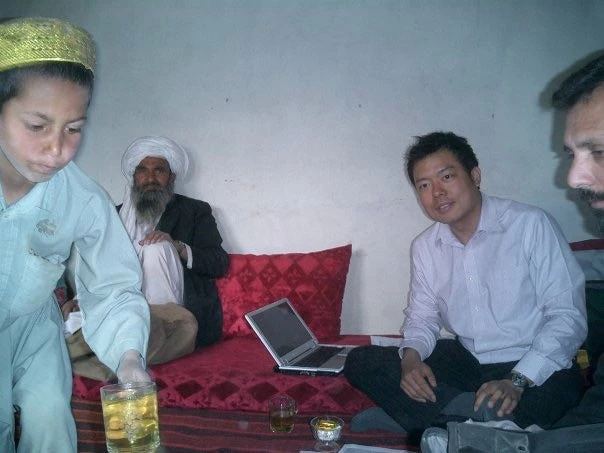"I can now fight fire," said Pinda during my interview with her in Maseru, the capital of Lesotho. We were talking about her experience with the fire safety training that was offered at the jeans factory where she works. I felt a tingle in my body from seeing the sense of pride in her face. It was a little surprising to see, with my very own eyes, right in front of me in flesh and blood, the impacts on “empowerment” -- the concept that we often discuss in meeting rooms of the World Bank or other international bureaucracies. “Wow, we did something good,” I said to myself, while probing further about impacts of the program that I was studying. (See the full video here.)
I was studying the Better Work program -- a partnership launched in 2007 by the International Finance Corporation (IFC) and the International Labour Organization (ILO), with an aim to improve working conditions in garment factories. Across developing countries, the garment industry often provides an alternative to low-skilled agriculture and service work. However, it has long been associated with poor working conditions. Better Work trains local enterprise advisors to assist factories in becoming compliant with national labor laws and international standards through unannounced assessments, and advisory and training services.
Pinda is among 40,000 mainly female workers in Lesotho’s garment industry, an important source of income in this mountainous kingdom, in which the garment and textile industry accounted for about 5 percent of the country’s GDP in 2014. Our report, Interwoven: How the Better Work Program Improves Job and Life Quality in the Apparel Sector, shows that these workers do benefit from programs like Better Work. For workers, the benefits extend beyond factory walls. Participants are gaining lessons from the Better Work experience and training. And they are taking those lessons back home, and improving the lives of their families.
Back to Pinda’s story. She told us more about the improvement in her financial situation due to the financial literacy course she took. She said, “I appreciate Better Work because I didn’t understand how to manage my salary. They gave us some training about budgeting and really I realize how to manage my salary. Even if it is small, I have to manage it. I have to sit down and see how things are going.” And she did manage to save and invest. Data from our surveys also revealed that financial literacy was one of the most common improvements highlighted by Better Work participants. In the baseline survey in 2011, workers reported that there were tensions in the household when it came to dealing with finances. After the program rollout, the feedback collected in the 2013 survey indicated that there have been considerable improvements in this area.
So, what can we consumers do? During this holiday shopping season, we may want to look for brands that invest in the well-being of the people making their clothes—like those partnering with Better Work in these eight countries: Bangladesh, Cambodia, Haiti, Indonesia, Jordan, Lesotho, Nicaragua, and Vietnam. You can learn about these companies here. Our research also shows that concern about reputation from brands helps push suppliers to improve working conditions in their factories. Let clothing brands know that you care via social media!
I was studying the Better Work program -- a partnership launched in 2007 by the International Finance Corporation (IFC) and the International Labour Organization (ILO), with an aim to improve working conditions in garment factories. Across developing countries, the garment industry often provides an alternative to low-skilled agriculture and service work. However, it has long been associated with poor working conditions. Better Work trains local enterprise advisors to assist factories in becoming compliant with national labor laws and international standards through unannounced assessments, and advisory and training services.
Pinda is among 40,000 mainly female workers in Lesotho’s garment industry, an important source of income in this mountainous kingdom, in which the garment and textile industry accounted for about 5 percent of the country’s GDP in 2014. Our report, Interwoven: How the Better Work Program Improves Job and Life Quality in the Apparel Sector, shows that these workers do benefit from programs like Better Work. For workers, the benefits extend beyond factory walls. Participants are gaining lessons from the Better Work experience and training. And they are taking those lessons back home, and improving the lives of their families.
Back to Pinda’s story. She told us more about the improvement in her financial situation due to the financial literacy course she took. She said, “I appreciate Better Work because I didn’t understand how to manage my salary. They gave us some training about budgeting and really I realize how to manage my salary. Even if it is small, I have to manage it. I have to sit down and see how things are going.” And she did manage to save and invest. Data from our surveys also revealed that financial literacy was one of the most common improvements highlighted by Better Work participants. In the baseline survey in 2011, workers reported that there were tensions in the household when it came to dealing with finances. After the program rollout, the feedback collected in the 2013 survey indicated that there have been considerable improvements in this area.
So, what can we consumers do? During this holiday shopping season, we may want to look for brands that invest in the well-being of the people making their clothes—like those partnering with Better Work in these eight countries: Bangladesh, Cambodia, Haiti, Indonesia, Jordan, Lesotho, Nicaragua, and Vietnam. You can learn about these companies here. Our research also shows that concern about reputation from brands helps push suppliers to improve working conditions in their factories. Let clothing brands know that you care via social media!


Join the Conversation